Within moments of visitors arriving at the weekend, my focus turned outwards. How could it not, surrounded by little people whose first instinct is to head outside and turn over pebbles.
My two-year old granddaughters hunted for woodlice (always their first mission) and the seven-year old spotted this pregnant spider, right in the doorway, which Ian photographed. (Arachnaphobes, do please scroll on past!)
She laid an egg sac right where the door would squash it, so we moved it and her to a safer location. (I say “we” – Ian moved her, obviously. I prefer to keep my distance.) Incy Wincy Spider became the ear worm of the afternoon.
On Saturday, there was a partial solar eclipse visible from the UK. We had blue, clear skies, so I retrieved the eclipse glasses we’d saved after the full eclipse in 1999 and we took it in turns to look at the crescent sun, which I managed to photograph through the glasses.
A few minutes after the eclipse had finished, there was a flurry overhead, as a sparrowhawk divebombed a buzzard. (Smaller birds of prey will often try to drive off larger ones when they threaten their territory.) It was thrilling to watch.
Look! Squirrel!
Next: a red squirrel sighting. Several weeks have passed since I last saw one in the garden. Since then, I’ve put up a squirrel feeder, the food has been disappearing, but I haven’t spied anything diving into the box.
Glancing out of the window on Saturday, my daughter Becky saw one scampering along the fence.
It really did feel as if the smiling sun, combined with the clocks going forward that night, catapulted us into Spring.
In the morning, Ian spotted a brood of tiny ducklings being led to the local pond by their mother. (I tracked the progress of ducklings that hatched in our garden a couple of years ago after they moved to the pond. It was heart-rending seeing their numbers reduce day by day as they ran the gauntlet of rural traffic, herons, foxes and God knows what else preys on them, but three of the 13 made it to adulthood, and I guess that’s not a bad result.)
But the truth is, despite living in a beautiful bit of rural England, I’m as guilty as anyone of focusing on screens and forgetting to look up and look closer. When I do pay attention, there’s always a surprise. One day in February, I spotted a magpie riding one of next door’s sheep. A moment earlier there had been two (“One for sorrow, two for joy” goes the nursery rhyme).
Another day, I caught my dog sheep-watching from the window. It’s what remote working is all about!
But over the winter I was so immersed in writing, reading, researching, working, that I didn’t pay much attention to what was going on on my doorstep. And I’m not immune to doomscrolling (or let’s just call it The News!).
I read
’s short and beautiful essay, which starts with a pair of pheasants arriving in her garden, demanding she slow her pace so as not to spook them, and encouraging her to return her gaze to the here and now. Here’s the link, if you’d like to read:“I feel as though I held my breath at the beginning of the year, and am yet to exhale.” … “No wonder the swathes of digital sand, eager for heads to be buried, appear so fiercely appealing.”
“Digital sand”, what a great phrase.
also wrote about reducing social media use in her recent Substack essay and finding a slower way to appreciate photographs:Both reminded me to get my head out of the digital sand, look up, see the world with wonderment.
My mother was always outdoors, looking out for wildlife and listening for birdsong. I love this photo she took in the 1960s, labelled “CUCKOO”. Can you spot it? I’ve zoomed in. Nada. But she trusted it was there.
Over to you: Do you spend too much time immersed in “digital sand”? How do you switch off from it? How do you connect with the natural world? Please do comment if you’re able. I love to hear your thoughts.
Thank you to everyone who responded to last week’s piece (which of course also featured pheasants!). Sharp-eyed
emailed to ask, “Is there really a recipe about how to cook Piles?” Because, of course, in Mrs Beeton’s comprehensive index that covers all things culinary, practical and medical, a page of which I pictured, “Piles” comes between “Pilchards” and “Pillaff”, and with these nose-to-tail Victorian recipes, you just never know! Thanks, for making me laugh, Abigail!The original domestic goddess, Mrs Beeton
“I have always thought that there is no more fruitful source of family discontent than badly-cooked dinners and untidy ways,” wrote Mrs Beeton in the preface to her best-selling book, Mrs Beeton’s Household Management.
Clicking the heart, commenting and/or sharing this piece will help other people find my writing.
Thanks for reading, and if you haven’t already subscribed, I do hope you will!
Or, if you wish to contribute with a one-off donation, there is a Wendy’s World tip jar:
Until next time!
© Wendy Varley 2025


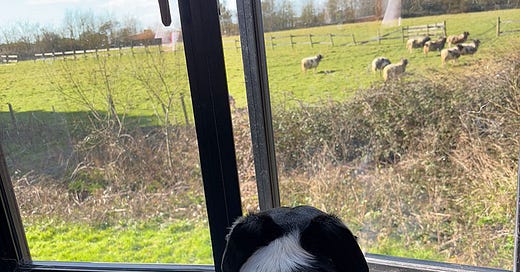


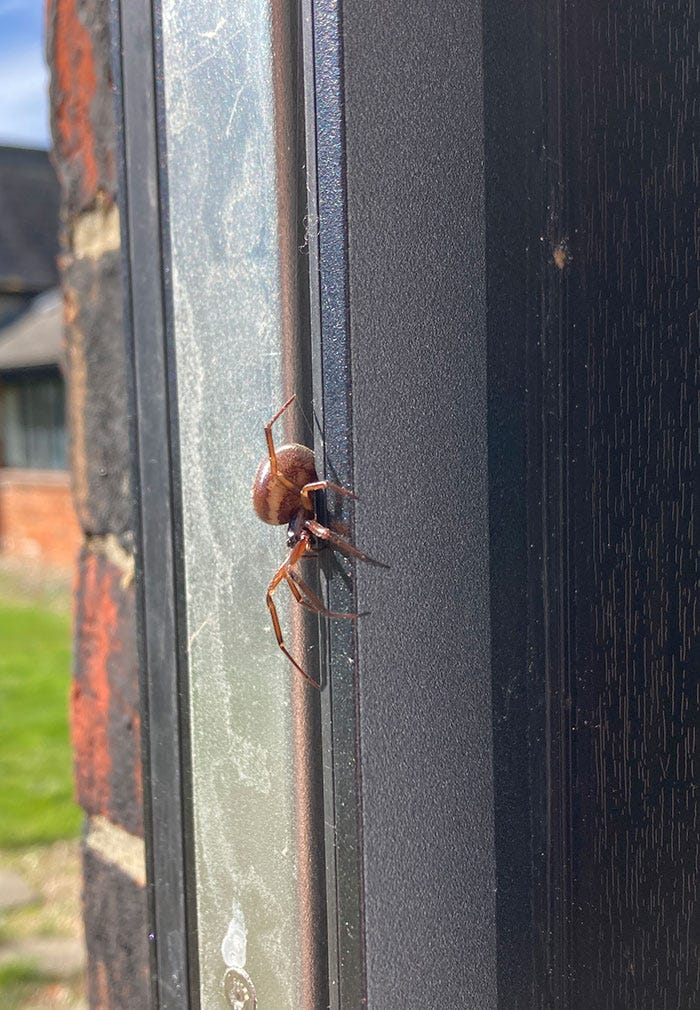
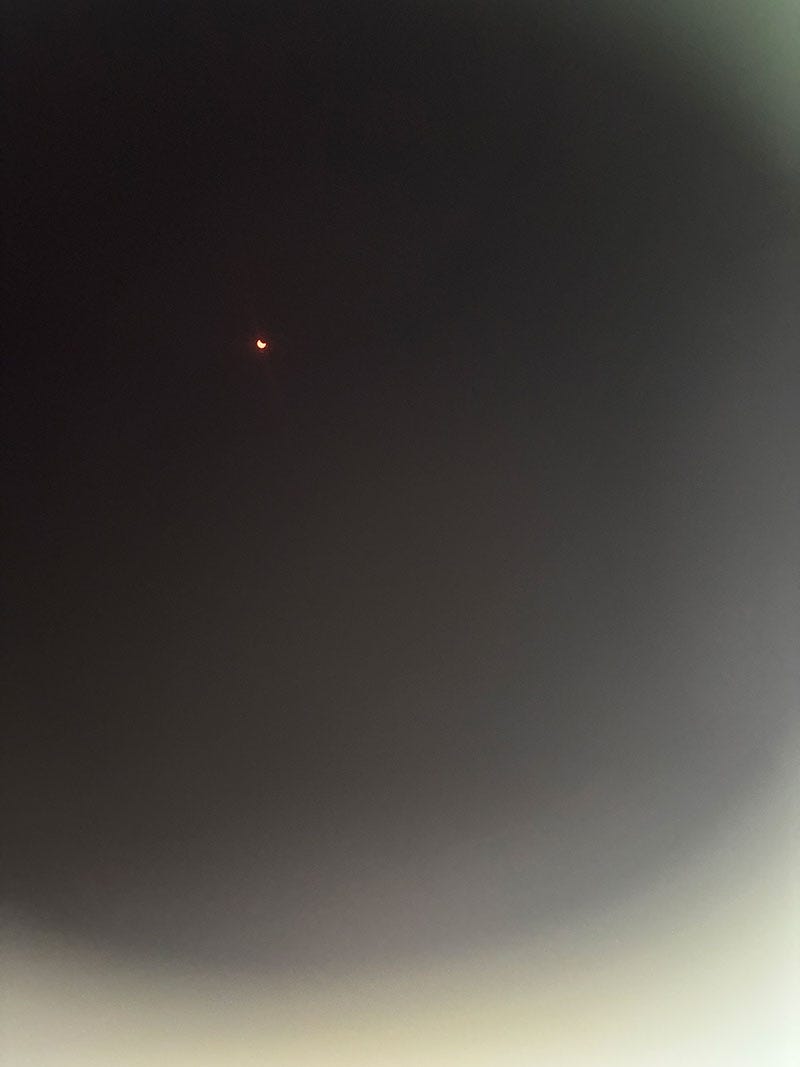
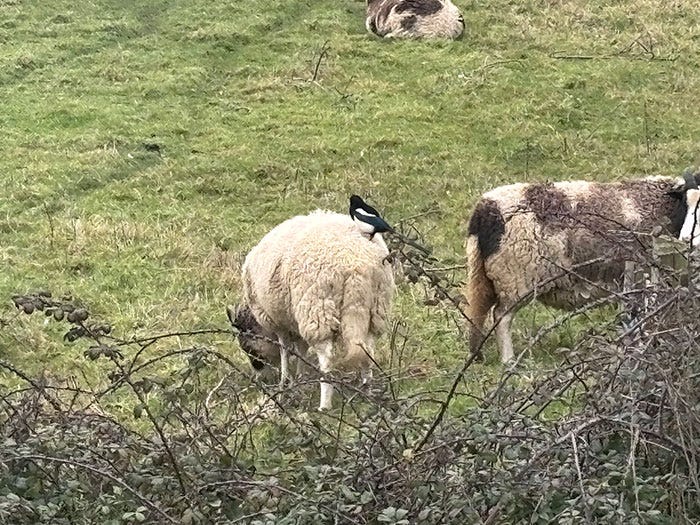
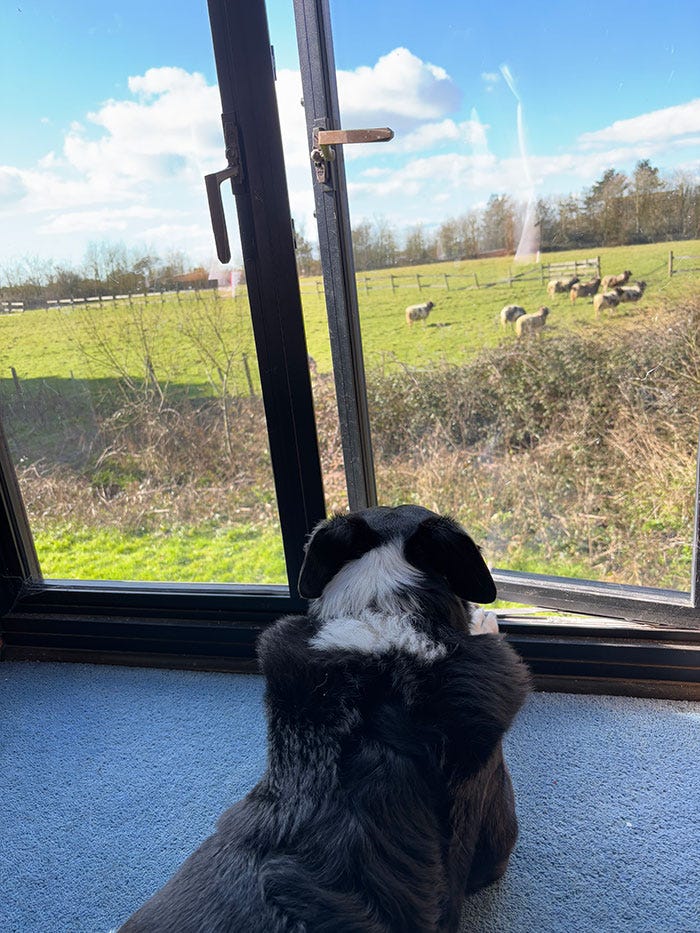


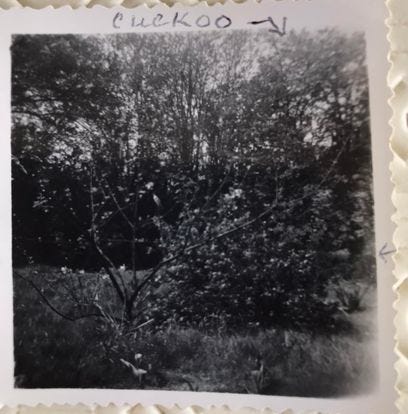
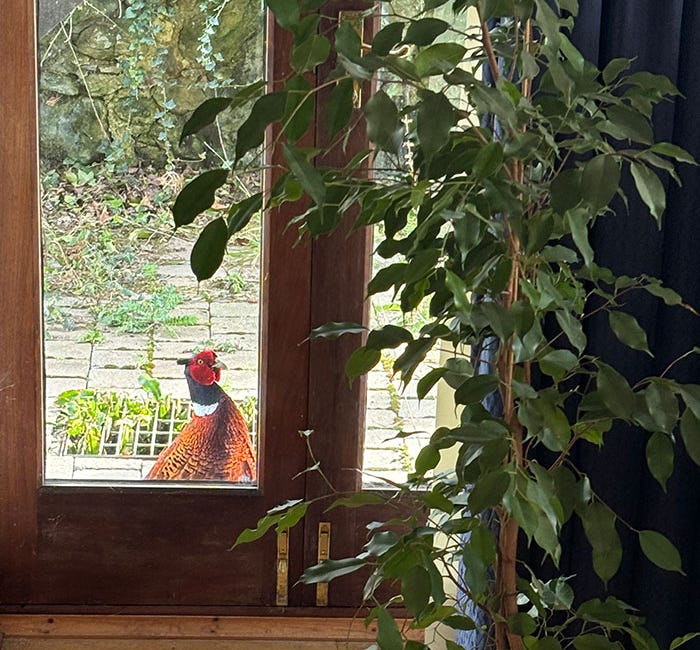
I never head it called a clutch of ducklings is that a British thing?
I read the seven-year old spotted this pregnant spider as 'this poignant spider'! Great post - and a red squirrel! Last time I saw one of them here was when I was a child. (Saw one in Copenhagen a few years ago. I was thrilled.)